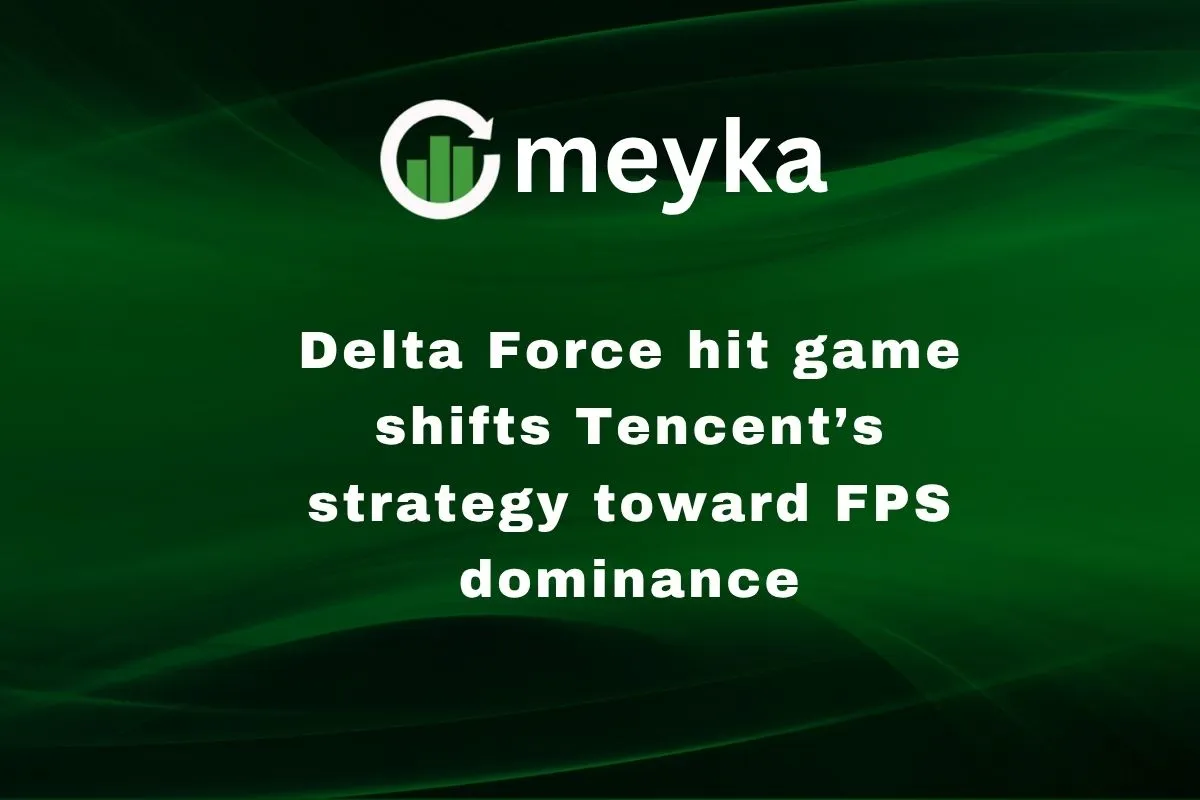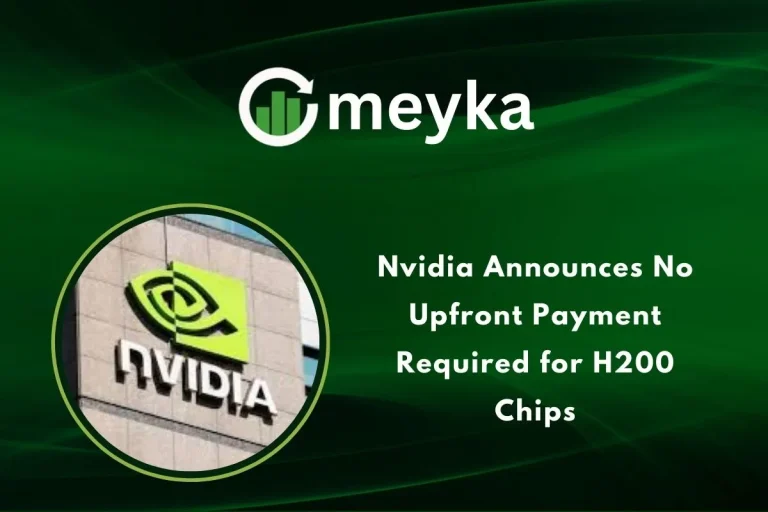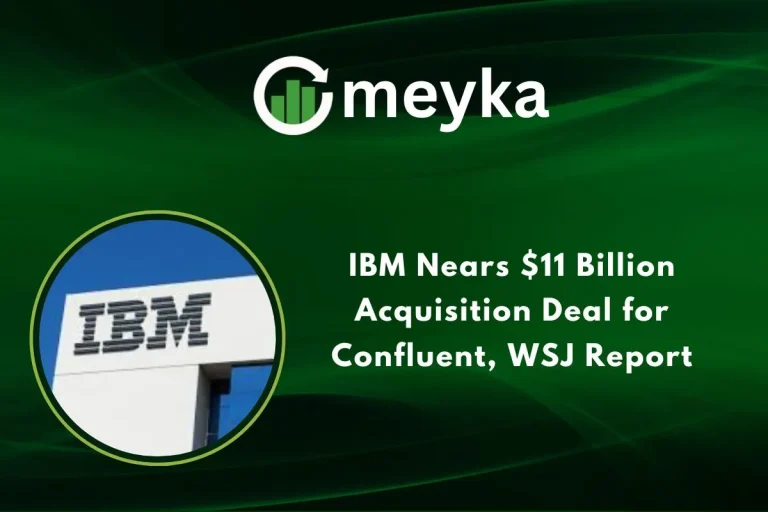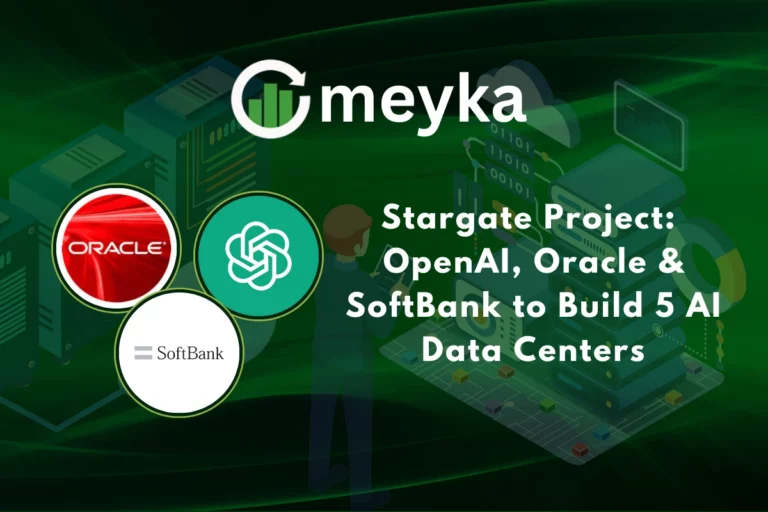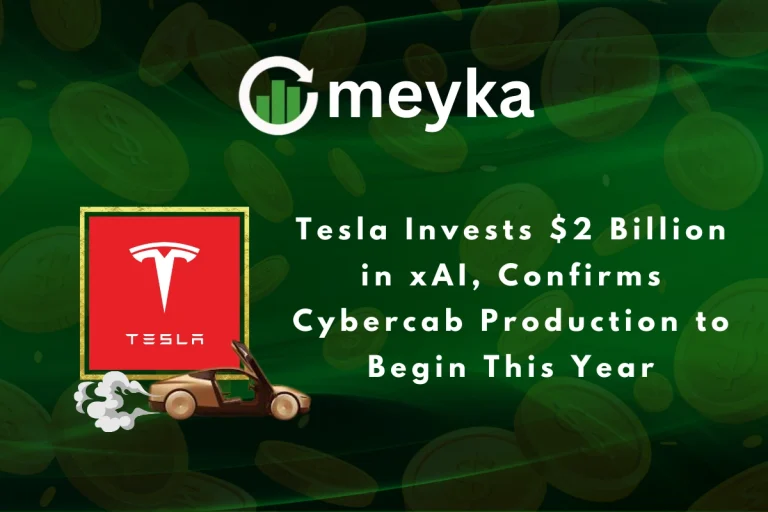Delta Force hit game shifts Tencent’s strategy toward FPS dominance
Tencent has quietly made one of the boldest moves in the gaming world this year. With the revival of Delta Force, Tencent is aiming directly at the heart of the first-person shooter (FPS) universe. The new Delta Force launched in April 2025 for PC and mobile, and later reached consoles. We believe this is more than nostalgia. It marks a serious shift in Tencent’s game strategy. The FPS market is more competitive than ever. Players expect deep action, smooth multiplayer, and cross-platform play. If Delta Force succeeds, it might become Tencent’s flagship FPS title. We will explore how Delta Force fits into Tencent’s gaming empire. We’ll explore its revival, role in global strategy, challenges, and what this could mean for the future of shooters.
Tencent’s Current Standing in the Gaming Industry
Tencent is already a powerhouse in gaming. It owns or holds major stakes in Riot Games, Supercell, and many studios in China and abroad. Its reach is huge: mobile, PC, console, esports, publishing, and more. In China’s shooter market, Tencent reportedly controls 48% of the revenue share. That gives it a strong base. But Tencent’s portfolio has had only a few FPS successes. With Delta Force, it’s going all in.
Tencent’s “Interactive Entertainment Group” (IEG) has shown strong growth in 2025. The gaming arm is revitalized. We see this renewed focus as a foundation for strategic moves into high-stakes genres like FPS.
The Revival of Delta Force
The Delta Force series began in 1998 under NovaLogic. It earned a reputation in tactical shooters but had faded in recent years.
Tencent acquired the rights and tasked its studio teams to reboot it. The new title was initially called Delta Force: Hawk Ops, but later reverted to Delta Force.
The official launch timeline:
- PC open beta began December 5, 2024
- iOS and Android release on April 21, 2025
- It became available on Xbox and PS5 starting August 19, 2025
The game offers three core modes:
- Warfare, large-scale 32v32 PvP battles across land, sea, and air.
- Operations, extraction-style, where squads infiltrate, loot, and escape.
- Black Hawk Down, a remake of the classic campaign missions.
Tencent has also tied Delta Force into its esports vision. At its 2025 SPARK conference, the company revealed a global tournament setup, with dual competition modes (Operations and Warfare).
By early October 2025, Tencent celebrated its first anniversary and claimed over 30 million daily active users in China alone. That shows Delta Force is earning serious traction.
Strategic Importance of FPS for Tencent
Why is Tencent pushing so hard on Delta Force? Because the FPS genre offers unique advantages. First, FPS games draw strong engagement. Players come back for daily play, ranked matches, and team competition. That means more opportunities for monetization (skins, season passes, battle passes).
Second, FPS is an esports staple. With Delta Force, Tencent can inject its infrastructure, streaming, tournaments, and community events. The SPARK 2025 announcement includes global finals scheduled for September. Third, it helps Tencent compete directly with global FPS heavyweights: Activision Blizzard, EA, and Epic. By owning a strong FPS IP, Tencent doesn’t just rely on partnerships; it plants its own flag.
Tencent already saw success in another FPS direction: it co-launched Valorant Mobile in China in August 2025. That title alone had over 60 million pre-registrations. The company is clearly investing in multiple fronts in the FPS space.
Integration with Tencent’s Global Strategy
Tencent’s aim is global reach. Delta Force fits neatly into that plan.
- Cross-platform & mobile first: It launched on PC and mobile first, then console. This order suggests Tencent prioritizes its strongest markets (PC/mobile) while building console presence.
- Localization & region plans: Tencent is known for strong localization in China. That model may help Delta Force adapt in Western and Southeast Asian markets.
- Partnerships & publishing: Tencent uses its studios (TiMi, Team Jade) and publishing arm to control development and rollout. It can also tap into other studios, acquisition deals, and investments in genre peers to build its ecosystem.
Tencent’s broader strategy also includes content ownership. For example, Tencent acquired a 25% stake in a Ubisoft carve-out containing big franchises (Assassin’s Creed, Far Cry, Rainbow Six). That shows Tencent is placing long bets on content, not just distribution.
Technological & Gameplay Innovations
Delta Force rolls out with modern tech and features that aim to set it apart. It uses Unreal Engine (versions 4 & 5) for high-fidelity graphics. The visuals are a big selling point in marketing. The warfare mode includes full vehicle warfare. Players can use tanks, armored vehicles, helicopters, and more. Environments are destructible, creating dynamic battlefields.
In Operations, players must coordinate, extract objectives, and face tight decision windows. That adds tension and skill depth. Tencent has also teased seasonal content updates. One major season is called War Ablaze, featuring new maps and gameplay boosts.
The Black Hawk Down DLC campaign is planned as paid content but will be co-op and free of microtransactions. All this gives Tencent room to refine its balance, expand modes, and engage communities over time.
Impact on Esports and Community Building
We expect Delta Force to become a key pillar in Tencent’s esports portfolio. The SPARK 2025 event announced competitive formats and a global finals stage. Tencent even held a major anniversary event in Hangzhou to celebrate the title and spotlight its community.
Community matters. Tencent supports creators, streaming, and events. That helps retention and word-of-mouth. The game’s global launch encourages cross-region tournaments and content. Because FPS tends to build close-knit teams and clans, Delta Force can foster deep loyalty. When players feel part of a squad, they stick longer.
Market Reception & Early Performance Indicators
The early data is promising. In China alone, Delta Force’s daily active users (DAU) reportedly hit over 20 million in July 2025. That made it one of the top games by usage and revenue in China at that time. By October, Tencent claimed more than 30 million DAU in China, and used the first anniversary to promote that feat.
Globally, Delta Force has been listed on Steam as free-to-play with positive reviews. Players praise its large-scale battles and solid gun feel. However, feedback isn’t all praise. Some players criticize the game’s anti-cheat practices, and the kernel-level systems raise privacy and security concerns. Others note that it feels like a hybrid of Battlefield and Call of Duty more than a pure Delta Force revival. Still, given its rapid growth and Tencent’s backing, Delta Force is a force to watch.
Challenges & Risks
Tencent’s push is bold, but not without risk.
- Competition is fierce. Call of Duty, Battlefield, Apex Legends, Valorant, and others already have loyal player bases. Stealing share won’t be easy.
- Regulation is a concern. In China, gaming approvals, content limits, and age restrictions may affect features or earnings. Western markets have different laws about loot boxes, monetization, and data privacy.
- Balancing nostalgia and modern demands is tricky. Longtime fans expect the classic Delta Force spirit. New players expect polished AAA gameplay. If the game leans too far either way, it may alienate one group.
- Security and privacy issues around anti-cheat systems are a major worry. As players have flagged, kernel-level anti-cheat tools are powerful and intrusive. Tencent must tread carefully to maintain trust.
- Monetization tension: free-to-play models must find a balance. Aggressive monetization may damage goodwill.
Conclusion
Tencent’s revival of Delta Force is not a mere nostalgia trip. It reflects a deliberate shift in strategy to claim ground in the competitive FPS domain. The early metrics in China are impressive. The game’s cross-platform design, esports ambition, and Tencent’s ecosystem strengths give it a solid chance to become a core FPS title globally. We will be watching closely: Can Delta Force sustain growth and win hearts beyond China? Can it rival legacy franchises? If Tencent plays its cards well, this could be a turning point in how Chinese gaming giants compete on the world stage.
Disclaimer:
This content is for informational purposes only and is not financial advice. Always conduct your research.
